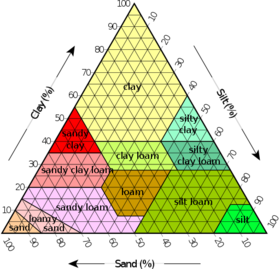Soil Ecology

Introduction
Soil ecology is the study of soil organisms interacting with biotic and abiotic components of soil. Soil organisms influence and respond to numerous soil processes and properties by delivering essential ecosystem services. Some of the key processes in soil are nutrient cycling, soil aggregate formation, and biodiversity interactions. The diversity and abundance of soil life exceed that of any other ecosystem. Plant establishment, competitiveness, and growth are governed largely by the ecology below ground, so understanding this system is an essential component of plant sciences and terrestrial ecology [1].
Soil Structure

The structure of the soil has a large influence on its ecological makeup. Soil structures include factors like soil composition (particulate sizes), organic matter, chemical makeup, and human impacts. Different soil structures host different organisms as well as different organisms can influence soil structure in many ways [2].
Soil Dependent Organisms
The variety of organisms the soil holds is by far the most important aspect of soil ecology. It contains thousands of different plants, animals, fungi, and bacteria. The biodiversity in soils is immense. Soil is impacted by everything, from 300-foot trees to millions of different single-celled organisms. Many organisms have created advanced systems of nutrient cycling, some even directly depend on each other for nutrients, while others compete [2].
Importance
Soil ecology only grows in importance as time moves on. The demand for food and its quality depend largely on soil and soil ecology. Developing ways of mitigating food source problems starts with the soil. Soil-dependent organisms are the solution to these problems, and studying them will only strengthen our remedies[4]. Species in the soil can also help with soil pollution. The more we know about these organisms, the faster we can detect and solve soil pollution. Finally, using the plants, animals, bacteria, and fungi in the soil as a resource can mitigate climate change and preserve soil biodiversity [1].
Refrences
[1] Coleman, D. C., M. A. Callaham, and D. A. C. Jr. 2017. Fundamentals of Soil Ecology. Academic Press.[1]
[2] Killham, K. 1994. Soil Ecology. Cambridge University Press.[2]
[3] Mikenorton. 2011. English: A soil texture diagram redrawn from the USDA webpage [3]
[4]Nielsen, U. N., D. H. Wall, and J. Six. 2015. Soil Biodiversity and the Environment. Annual Review of Environment and Resources 40:63–90. [4]
[5]Shirazi, M. A., and L. Boersma. 1984. A Unifying Quantitative Analysis of Soil Texture. Soil Science Society of America Journal 48:142–147. [5]